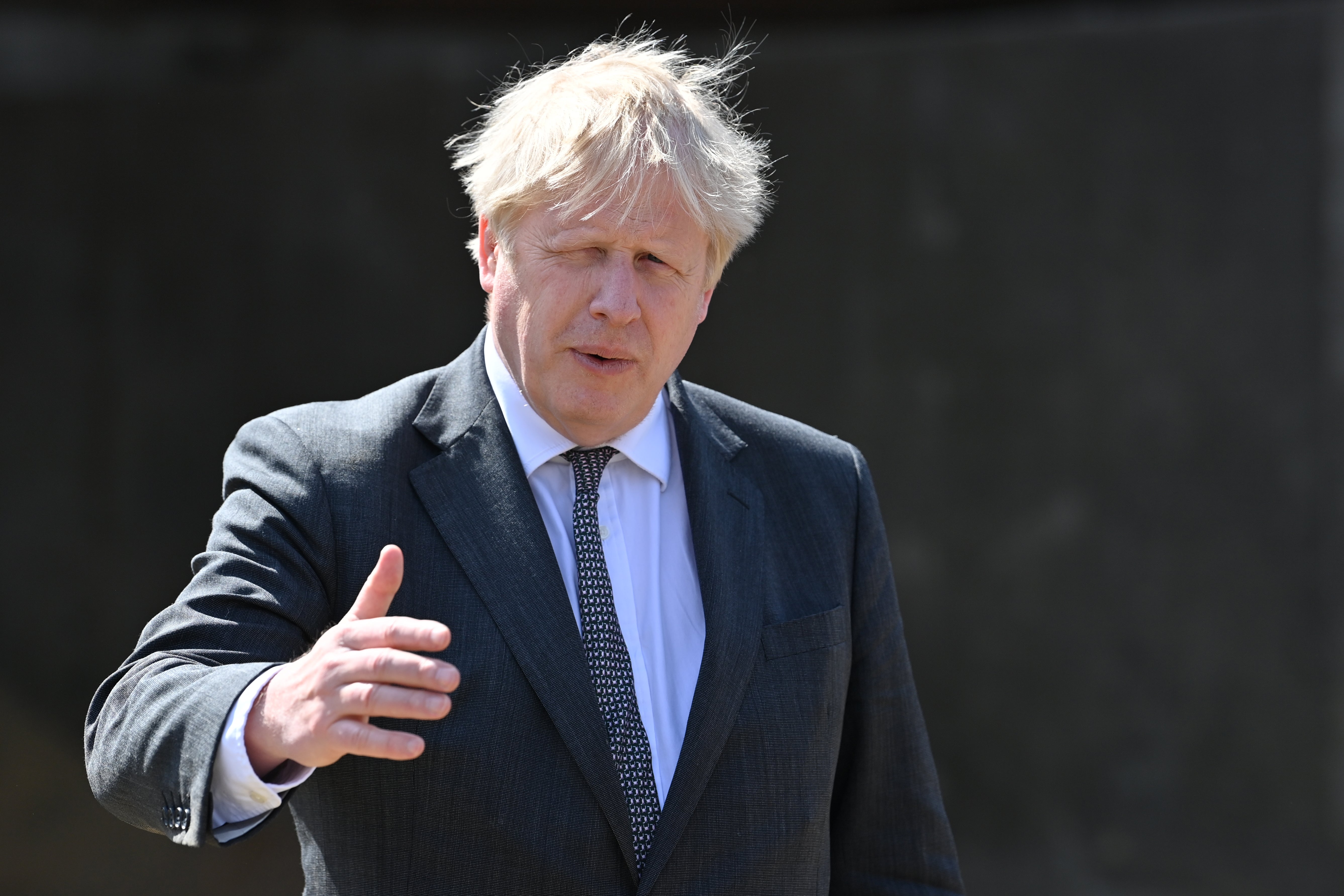The trickiest problem Boris Johnson faces is the Downing Street flat renovation funding
Of all the subplots of ‘The Revenge of Dom’ drama, it is the interior decor that has the greatest capacity for harm, writes John Rentoul


The outbreak of war between Dominic Cummings and Boris Johnson is being fought on so many fronts that it is hard to focus on what the story is. The breakdown in relations between the comrades of the Vote Leave campaign who became the Vote Leave government is the big story – “The Revenge of Dom” – but each element of it is headline news by itself.
The media pack is currently swarming mostly over Johnson’s alleged expression of frustration at feeling he had to order a second lockdown at the end of October – that he would allegedly rather “let the bodies pile high” than ever order another. An appalling and tasteless thing to say, but hardly likely to change people’s minds about the prime minister’s character.
The war has also spread to other stories. It seems unlikely that Cummings was the source of the leak of Johnson’s text exchange with Sir James Dyson, the vacuum innovator who volunteered to help build ventilators at an early stage of the crisis. Cummings denied it in his blog post last Friday, but he didn’t deny being the source of reports about texts to Johnson from Mohammed bin Salman, the crown prince of Saudi Arabia, who apparently complained over a blocked bid to buy Newcastle United.
The cronyism strand of the one big story has the capacity to be damaging to the government over time. At the moment, the people who are outraged by it tend to be those who formed a dim view of Johnson long ago. The median voter thinks that if it was necessary to cut corners in a national emergency, that was a price worth paying. So the streets are empty of people protesting at PPE contracts handed out to companies with connections; MPs’ inboxes are clear of emails complaining that Sir James secured special tax treatment for his staff to work on ventilators; effigies of Kate Bingham, the former head of the vaccine task force once accused of spending too much on public relations advisers, remain unburnt.
All the same, it makes sense for Keir Starmer to talk about “the return of Tory sleaze”, because once the vaccine euphoria wears off and the pandemic recedes from the collective memory, this kind of thing will be damaging.
But the prime minister’s immediate problem is the cost of refurbishing his Downing Street flat. Again, Cummings has not denied being the source of stories about it in the Daily Mail since 2 March. There is no public money involved – beyond the £30,000 a year that is available to all recent prime ministers for its upkeep – but there is the awkward problem of who initially paid for the amount in excess of the £30,000, and of the law on the disclosure of political donations.
Given that neither Michael Gove, the cabinet office minister, nor Simon Case, the cabinet secretary, were able to shed much light on the matter yesterday, let us summarise what has been reported.
The Mail has published an email from Lord Brownlow, a Conservative donor and former party treasurer, to the party in October saying he was paying £58,000 “to cover the payments the party has already made on behalf of the soon to be formed ‘Downing Street Trust’”. Presumably, that means the renovation cost at least £58,000 more than the £30,000 allowance, a total of £88,000, but it may have been more.
It would seem that the Tory party paid this bill, in the expectation that Lord Brownlow and possibly others would stump up the money later, maybe through a trust that would be set up to look after the building. But it turns out that a trust is complicated, as Case explained to MPs yesterday, and in the end Johnson decided to pay for the whole thing himself. Gove tried to pretend that this should be the end of the matter, but it clearly is not, because it looks as if the prime minister temporarily benefited from a donation or a loan, which ought to be declared and has not been.
The rules on declaring loans and donations are that the information must be given to the Electoral Commission for publication. Any loan or donation made in the fourth quarter of last year had to be reported by the end of January, but this one wasn’t. This may not seem important, given that Johnson has now paid up, but the law is the law. No wonder the Electoral Commission is still “in discussions” with the Tory party about it.
But it also matters because, as Daniel Finkelstein, the Tory peer and Times columnist, pointed out yesterday, people can easily grasp stories about politicians with expensive tastes in home decor: “The suggestion that the apartment had to be redecorated because its decor came from John Lewis will offend all those for whom John Lewis decor seems quite plush and upmarket. Which is almost everyone.” This is true even if most of the bill wasn’t charged to the taxpayer.
Finkelstein said “I don’t think it is preposterous to imagine” that the complications of the flat refurbishment story will force Johnson out of office. I think that is a bit of a stretch, but of all the sub-plots of “The Revenge of Dom” drama, this is the one with the greatest capacity to damage the prime minister.



Join our commenting forum
Join thought-provoking conversations, follow other Independent readers and see their replies
Comments